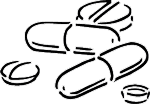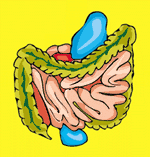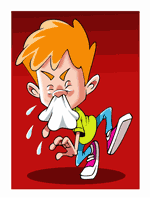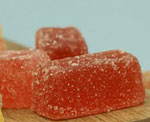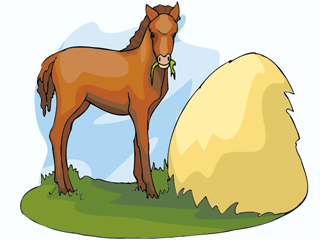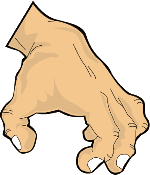Weaning off PPI
with the Help of ACV
Testimonial
Testimonial
Weaning off ppi with the help of ACV is the topic of this detailed Testimonial by Tom T from Michigan, USA.
So far he has reduced his ppi usage in half without any appreciative increase in GERD symptoms.
He hopes to reduce his PPI usage even further and as a result reduce the possible drug side effects such as the increased risk of hip and wrist fractures, possible chronic kidney disease and an increased risk of dementia.
You can review
his complete story below:
Weaning off PPI with ACV
Testimonial
Location: Michigan, United States
Date: March 23, 2016
GETTING OFF PPIs
I thought it might be helpful to others to chronicle my attempt to rid myself of daily PPI use.
BACKGROUND
I am a 58-year-old white male first diagnosed with GERD in Jan 2006. For 10 years I've taken a daily 40 mg PPI, first Aciphex and
two years later changed (due to insurance restrictions) to Nexium. In addition, when necessary, at bedtime I take two tablespoons of regular strength Mylanta. The Mylanta use varies depending on symptoms. I might take it 4 times one week but only once the following week. But thus far it's been a savior for getting a good night's sleep. For bloating I also take, as necessary, generic Gas-X (simethicone) to aid in passing gas. More on this later.
Unrelated to my GERD I also take one 25 mg dose of Metoprolol for a congential heart condition discovered during a cardiac
catherization performed in June 2013. I also passed a 5mm calcium oxylate kidney stone in May 2011 (no fun!).
I am 5'10" and weigh 185 pounds. BP high-normal (125/80). Resting heart rate of 55-65. Never smoked. I've exercised regularly,
for the most part every other day, for the past 25 years: 100 situps followed by 40 minutes on a Nordictrack ski machine (3 years
ago the 40 minutes left me fatigued so I changed to 20 minutes on the Nordictrac and 20 minutes on a treadmill. I still do the situps.) However, outside of the self-imposed exercise regimen my lifestyle has become increasingly sedentary (I'm retired).
HISTORY
Following the GERD diagnosis I had my first EGD and colonoscopy in Oct 2006 at age 49. The colonoscopy was normal, the EGD confirmed the GERD but was otherwise normal and negative for Barretts. Stomach biopsy positive for H. Pylori. PrevPak prescribed.
GERD symptoms persisted. I consulted with a gastroenterologist who performed a repeat colonoscopy and EGD was performed Nov 2011. Colonscopy showed signs of past diverticulosis but otherwise normal. This time the EGD showed the presence of Barretts esophagus. PPI increased to 40mg twice a day. Surveillance EGD in 2 years.
I was unable to tolerate the PPI twice a day (felt worse than ever) and went back to once a day after about 8 months. GERD symptoms increased during 2012 and 2013 with increased episodes of chest pain and fatigue. A stress-test and heart catherization was performed to rule out cardiac causes. The cath showed no blockages but revealed the congenital myocardial bridge.
A third EGD performed May 2013 (same gastroenterologist). Results were "normal, other than what is commonly seen with GERD." Biopsies showed no signs of Barretts (!). It was my belief Barretts was progressive and once you had it, you had it. My GE said his first diagnosis of Barretts was "probably based more on visual inspection during the EGD." Lost faith in my gastroenterologist.
In August 2015 I awoke with chest pains different from what I usually experience with GERD symptoms (including nausea and dizzinness) and went to the E.R. to be safe and rule out a heart attack. ECG and timed troponin showed no evidence of a heart attack. "GI cocktail" (lidocaine and Zantac) eased symptoms. Just a particularly bad GERD episode.
I had a fourth EGD (different gastroenterologist) performed Aug 2015. Other than GERD, essentially a normal scope, confirmed no Barretts, no hiatal hernia.
SYMPTOMS
Throughout my 10-year battle (and at times it has been a battle) with GERD my chief complaint has not been the typical burning sensation but chest pain (like I'm being pinched in the center of my sternum) and a feeling of pressure in my chest directed from below. And regardless of symptoms, the best, nearly instantaneous relief of my symptoms occurs by passing gas (recally, not burping). If I have a pain in my chest I know that within a minute or two I'll pass gas which alleviates the pain. I've tried to explain this phenomenon to my primary care physician and my GE, believing there has to be some sort of link between abdominal pressure and chest pain, or a differential occurring above and below the lower esophageal sphicter but this explanation is dismissed. My symptoms also worsen whenever I do activity which requires upper body exertion like carrying heavy objects. Even so, they improve greatly as soon as I pass gas. I can't be the only one with this pressure/passing gas causality. Conversely, if I'm not passing gas regularly, for whatever reason, my GERD symptoms are always present.
DIET/LIFESTYLE
I take my PPI once a day upon rising (I don't always 30 minutes before food consumption). My real trigger foods are tomato sauce, chocolate, and for some reason, eggs. I must admit I don't help myself by drinking coffee the first thing (after taking the Nexium) on an empty stomach but need that cup to become functional. So it's PPI, coffee, a BM, and then breakfast. Breakfast is always the same, cereal and toast. I don't always have lunch but when I do it's something light like tuna, a slice of peanut butter toast, or yogurt. Dinner is whatever my wife puts in front of me. I'm careful not to eat too much as it practically gaurantees that feeling of bloating and chest pressure.
I sleep with the head of my bed raised. Before retiring I can usually tell if I'll need the Mylanta which almost always keeps symptoms under control and affords a decent night's sleep.
Finally, it's been increasingly necessary to wear loose fitting pants as even the smallest contriction on the abdomen results in a feeling of pressure in the chest.
DECISON TIME
Every few months it seems like you hear a new horror story about long term use of PPIs. When first prescribed I was told PPIs had a long track record of safe use. Then came an increased risk of hip and wrist fractures, followed last year by a link to chronic kidney disease. The latest is an increased risk of dementia. I find myself wondering what the heck am I doing to my body in the long term.
And I continue to suffer from GERD. Particularly distressing is in the past month or two I've experienced strange, albeit brief,
episodes in which I feel I can't draw a deep breath. It only lasts a minute and comes with no rhyme or reason. My last EGD showed no hiatal hernia so I'm at a loss to explain it. I'm to the point where I'm considering either a Nissan fundoplication or the newer TIF (transoral incisionless fundoplicaton) procedure.
It was while researching the TIF that I stumbled across this website and after reading overwhelming, albeit anecdotal, evidence of Apple Cider Vinegar (ACV) helping with GERD that I've decided to give it a try in hopes of weaning myself off PPIs and avoiding surgery.
PLAN/METHODOLOGY
I'm entertaining the theory that the stomach requires a certain amount of acid for proper digestion and that long term PPI intake has compromised that ability, along with the normal intestinal gut flora. And I don't think it unreasonable to assume that my particularly nasty flare up of GERD symptoms might actually be the result of H. Pylori or C. Diff infections. I'm hopeful the
introduction of ACV to the digestive process will at least mitigate my symptoms.
My plan involves adding ACV while methodically reducing my PPI intake. On Day 1 I took my PPI as usual. On Day 2 I skipped the PPI and took it again on Day 3. I'll continue taking the PPI every other day for three weeks and then reduce PPI intake to every third day for an additional three weeks.
As for the ACV, the dose I'm using is a mixture of one TABLEspoon of organic ACV (I'm using White House brand) and one TEAspoon of honey (which I've found to be absolutely necessary to make the concoction palatable) in 6-8 ounces of warm water. I'm taking the ACV before breakfast regardless of whether I've take the PPI that morning or not. I'm also taking the ACV before dinner but not at lunch, if I have lunch. I've not waited the 30 minutes others have suggested but am taking the ACV maybe 10 or 15 minutes prior to ingesting food. If I still feel GERD symptoms at bedtime, and will dose with Mylanta, I do not take another dose of ACV, feeling doing so might be counterproductive to the otherwise good results I get with the Mylanta.
SO FAR
Day One was March 4th. Today is Wednesday, March 23rd so the first three-week phase is nearly up.
How has it gone the past 3 weeks? Well, so far so good. I was expecting horrible rebound/breakthrough on the days I skipped the PPI but, aside from one rough day about 10 days in (in which I also wasn't passing gas so something else may have been going on), I can honestly say that I really feel no different on the days in which I've taken the PPI, than I do on the days in which I don't take the PPI. I view this as somewhat of a victory in and of itself as it means, thus far, that I've at least been able to cut my PPI usage in half without any appreciative increase in GERD symptoms. That's not to say I'm not still having GERD symptoms. I am. But they do appear milder, less frequent, and quite manageable.
I'm finding that on those days I've skipped the morning PPI I can't skip lunch (I've added yogurt with probiotics as a lunch
staple), or I'll feel my stomach churning. At lunch I do not take ACV beforehand - the ACV has been reserved thus far for breakfast and dinner only. Also, on the majority of evenings on the days I've skipped the PPI I've found a dose of Mylanta is needed prior to bed. All in all, an equitable trade off so far.
As a side benefit, which I cannot explain, I feel like I have more energy and less fatigue since I've started adding ACV/reducing the PPI. Maybe this is a placebo effect but it feels tangible to me.
Friday is the start of the next three-week period in which PPI use is lowered to every third day. I plan to do this for another three weeks and then consult with my family physician to share results and maybe request blood work to ensure I'm not wreaking havoc somewhere else. I'm hopeful by this time my body will have adjusted somewhat to the production of normal stomach acid again and, coupled with continued use of ACV, view PPI ingestion as increasingly unnecessary. But I'm also trying to stay realistic and not be discouraged by trying to reverse the effects of 10 years of continuous PPI use in 6 weeks. We'll see.
I'll make a note to report back on 15 April.
Update: April 28, 2016
This is the promised follow-up to my lengthy entry of March 23rd, 2016 in which I detailed my attempt to completely wean myself from daily PPI use over a six-week period.
The short version: I was unable to do so.
After a relatively smooth transition from daily use to every other day during the initial 3-week period, I hit a wall almost immediately when moving to every third day. The rebound/breakthrough I experienced was terrible -- the worst heartburn I've ever had, coming on the evening of the third day (so about 60 hours after the last PPI pill). I wanted to "gut it out" but the discomfort was acute and I had to take my PPI and dose with Mylanta to quiet things down and get through the night.
The next day I regrouped with the goal of trying again in case the experience was exacerbated by something I ate or another factor. I returned to the every other day regimen for the next week at which time my symptoms quickly returned to what they had been during the first 3 weeks, quite manageable. At the end of the fourth week I tried again going to every third day . . . but with the same results.
So for me at least, it appears at this time I'm not able to progress beyond taking my PPI every other day. Still, I'm not (overly) discouraged as the addition of ACV with meals has allowed me to cut my PPI use in half while at the same time keeping my GERD symptoms to the most manageable level they've been in 10 years.
And it's possible six weeks just wasn't long enough to allow my body to adjust before moving to the next step -- I'll try again in six months.
